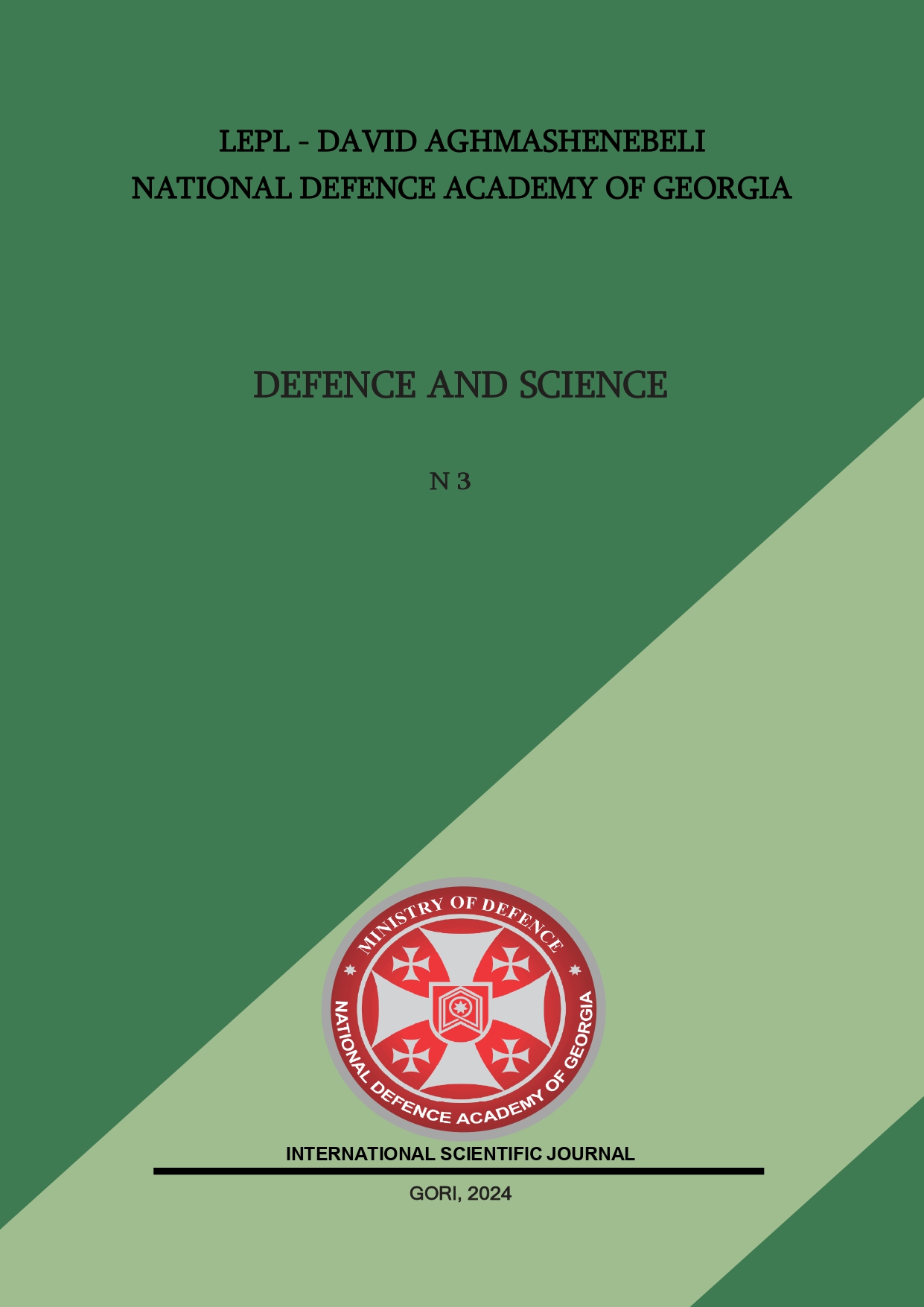ARTIFICIAL INTELLIGENCE, ETHICAL CONSIDERATIONS, FUTURE TRENDS AND CHALLENGES
DOI:
https://doi.org/10.61446/ds.3.2024.8485Keywords:
artificial intelligence, ethics, norms, military field, security, war, challenges, technologies, defenseAbstract
Artificial intelligence has somehow become the force that has transformed various sectors, including the military. Moreover, AI technology has revolutionized the military with its ability to rapidly process large amounts of data, make decisions, and analyze complex patterns.
Analyzing the question of how it is used and what ethical norms exist in military structures is not an easy task, because artificial intelligence components are supported by the defense sector in many directions - autonomous weapons and vehicle systems, intelligent command and control systems, predictive maintenance performance, logistics and maintenance services. , cyber security, intelligence and surveillance, decision support systems, simulations and training, artificial intelligence applications and more. We have already discussed these issues in detail in the main part of the book, analyzed and discussed all the relevant issues related to the introduction, use and development of artificial intelligence technologies.
The development of artificial intelligence has raised hopes of bringing great benefits, which can be reflected on the one hand in the Internet of Things (IoT), a huge set of capabilities, such as unmanned surveillance and targeting, health monitoring of soldiers, situational awareness and other critical applications. The trend is that decisions in future wars will require seconds, minutes, or even hours rather than days and weeks. This implies that the operational environment should be analyzed. By using artificial intelligence and machine learning, rapid information can be delivered to the frontline, which also means rapid decision-making. The Internet of Military Things is known to encompass many different tools, from battlefield sensors and weapon systems, to surveillance, intelligence, communications, wearables, and sensors on ships, aircraft, tanks, and the body. These tools collectively share an unprecedented amount of information in real-time during the war. The success of this issue depends on the ability to collect and store huge amounts of data from thousands of devices. However, a much more problematic issue is to quickly understand this information and deliver results to the fighters so that said information is useful and can be used.
Ethical norms for the use of artificial intelligence differ from general ethical standards, artificial intelligence is more automated and scalable than most other processes, roles also include ethical risks - risk mitigation, legal risks reduction, human discrimination reduction, etc.











